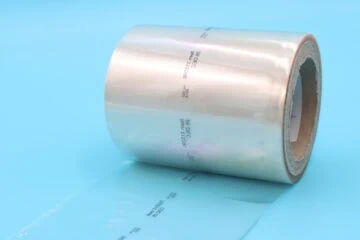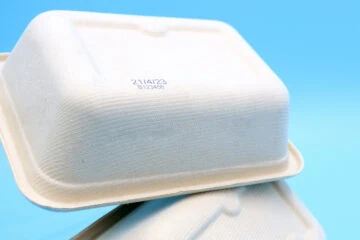Challenges surrounding compostable packaging
Unfortunately, there can be confusion around what to do with compostable packaging when it’s reached its end of life. It’s usually not clear that it needs to be taken to an industrial composting facility to be processed effectively.
Such packaging often ends up the recycling bin by accident, posing a huge contamination risk. It is for this reason that it’s not currently recommended to use biodegradable plastics to replace the packaging of items that consumers are used to recycling, such as water bottles or yoghurt pots.
So, what are compostable plastics ideal for?
Ideal applications for compostable plastics
There are several applications where compostable plastics could prove successful.
Flexible plastic wrap or film is a popular packaging choice among food manufacturers, but it is often not recyclable, or very tricky to recycle. This would make it an ideal contender for compostable plastic, where the consumer could dispose of it into a food waste caddy – particularly when the film itself has been in contact with the food it’s covering.
Speaking of food contamination, ready meal trays are often coated with baked on food, making them hard to clean and therefore unsuitable for general recycling. This presents an ideal opportunity for this type of product to be compostable alongside household food waste.
Lastly, items that regularly end up in the compost bin by accident. Things like tea bags and banana sticker labels often find their way into food waste, so it would make sense for them to be made from compostable alternatives where possible.




